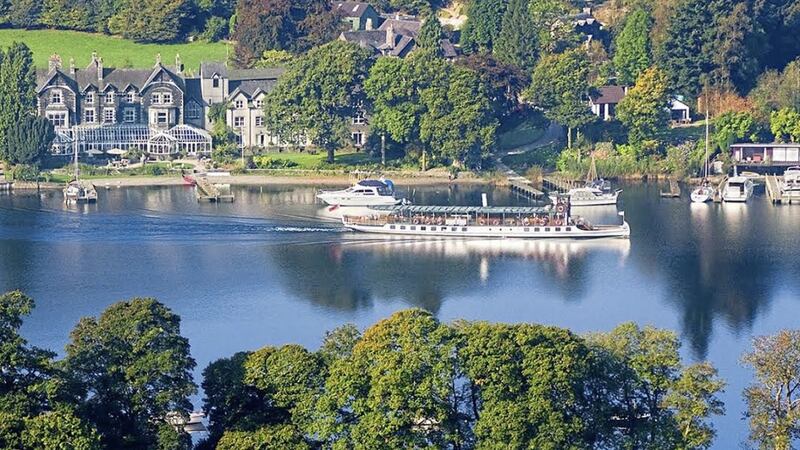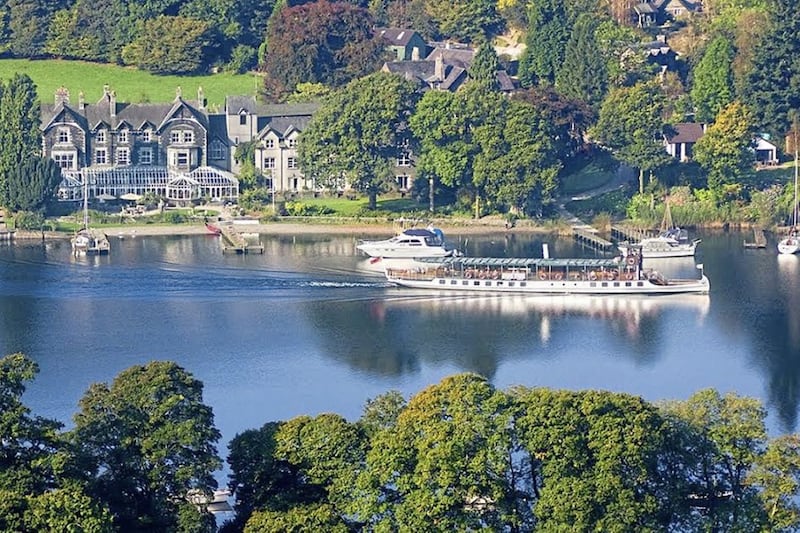I MAY be slightly biased having been born in the north-west corner of England but for me the Lake District is as good as it gets.
Perhaps the only flaw is in its name. Not only does ‘Lake District’ sound a bit clinical – it doesn’t have the rhythmic melody of, say, ‘Connemara’ – the name only pays homage to one aspect of this magnificent, quintessentially rustic, landscape. In addition to the numerous eponymous lakes, there’s rivers, becks, crags, valleys, pikes, fells, stone-walled farms, ancient woodlands, pastures, meadows, and much more.
It was these Cumbrian hills and valleys that helped form modern, romantic ideas about mountains and nature. Turner, Constable and Girtin arrived here back in the 18th century, as did Wordsworth, Coleridge and Thomas de Quincey, all to be inspired by and immersed in natural splendour. Victorian-era watercolourist, social thinker and philanthropist John Ruskin too deserves a shout-out as one of those whose paintings and writings about the lakes were instrumental in fostering the area’s treasured status.
Before the Romantics sought out an antidote to the rapid industrialisation taking place 100 miles to the south, the Lake District uplands were home only to sheep and shepherds, who together over centuries helped shape the landscape. In some places the hillsides look like velvet, cast in many hues, in others dark rock faces tower high.
The area has also been shaped by forestry and farming on the valley floors, along with mining and quarrying; the latter for the slate from which many vernacular houses, farm buildings and walls are fashioned. Many of the buildings and much of the landscape looks as it did a century ago – in Cumbria conservation isn’t a buzzword but a marketable commodity.
It’s already England’s largest national park and the Lake District will find out in July whether its ‘culture landscape’ has secured Unesco World Heritage site status. If you ask me, it’s a no brainer.
We last visited the Lakes a decade ago with two young children. It’s four to five hours from Belfast if you take the car on Stena Line’s quick crossing to Cairnryan. Stena’s Superfast VII, which services the Belfast-Cairnryan route, recently came out as the top ship of 23 in an internal customer satisfaction survey. I can easily see why. For me, taking the ferry is always the first, hassle-free option.
Our accommodation in Cumbria last time around was the Lakeside Hotel in Newby Bridge. A four-star, country house-style hotel nestled on the waterfront at the southern end of Lake Windermere. With the children it was handy – as in a stone’s throw handy – to the Lakes Aquarium and the launch for the Windermere cruises to that sail up the long, thin – but very deep – lake.
For the past 10 years regular emails from the Lakeside Hotel have been popping into my in-box. While I normally waste little time in unsubscribing from marketing circulars, I always tolerated this automated correspondence due to my fond memories of the previous family break. And lo-and-behold the marketing ploy worked, as we returned to the hotel last month – though this time ‘sans enfants'.
When staying at a quality establishment such as this there’s always a temptation to spend all your time there, whether it’s enjoying a sauna or a swim in the 17m guests-only pool, or relaxing in the conservatory, looking out on Lake Windermere and across to the wooded slopes on the other side of the valley.
From the conservatory doors, sandstone steps lead you to a gravel path and down to the pebble shoreline in seamless continuity. Turn around 180 degrees and the view looking inland towards the hotel is almost as breathtaking as the one across the lake. The gardens of the Lakeside are as classy as every other aspect of this hotel, where there’s attention to detail at every turn.
They are lovingly maintained daily by Antipodean gardener Roger Thresher, with ‘consultant gardener’ duties provided by Chelsea gold medal winner Richard Lucas. Not only does the garden have an ornamental role, it also provides herbs and other occasional ingredients for the hotel kitchen.
Quality food is central to the Lakeside’s offer. The candlelit fine dining in the Lakeview Restaurant was among the best I’ve experienced, with local, seasonal ingredients utilised inventively and to great effect. This approach extends to the less formal Ruskin Brasserie, which the week we visited had just launched its ‘British tapas’, with a selection of smaller, intensely-flavoured dishes designed to share.
The Lakeside can also boast to be the only Aveda destination spa in England, offering a range of facial and body treatments delivered by skilled therapists in private treatment rooms. I tend to prefer a pint of bitter and a packet of pork scratchings in the bar but my wife was certainly impressed.
However, like a large proportion of the hundreds of thousands who visit to the Lake District every year, we were there to walk. From long treks taking you over 3,000 ft to leisurely waterside or woodland strolls, the area is replete with choices. A guide to many of the most picturesque walks in the Lakes are available, written and illustrated by the late Alfred Wainwright, the Blackburn-born fellwalker and author who published a seven-volume Pictorial Guide to the Lakeland Fells more than 50 years ago.
Our rather ambitious plan A was to take a day climbing Scafell Pike, England’s highest peak (978 m/3,209 ft). Plan B was to scale the smaller Black Combe (600 m/2,000ft), which lies on the coast, and like our Co Down home, looks out on the Isle of Man.
In the end, however, persistent rain forced a scaling back of our plans and we ended up walking directly from the hotel into the nearby woods, where we followed a colour-coded trail past moss-covered stone walls and bubbling brooks, while red squirrels darted in the branches above.
It wasn’t the bucket list experience we’d hope but on the upside we got to spend more time in the luxurious surroundings of the Lakeside Hotel. Keep those emails coming…
FACT FILE
:: John Manley and his wife stayed at the four-star Lakeside Hotel in Newby Bridge, Cumbria. Prices vary, but the hotel offers short breaks all year round, starting from £169 per night (based on two-night stay) inclusive of bed and full English breakfast. See lakesidehotel.co.uk, call 0153 9530 001or email reservations@lakesidehotel.co.uk
:: They used Stena Line’s Belfast to Cairnryan service. You can travel on on the Stena Superfast VII and Stena Superfast VIII from £10* day return for foot passengers or for single car and driver from £79 (when you book 60 days in advance based on an economy crossing for a car and driver). Crossing 2hrs 15mins approx; up to six sailings a day. There’s plenty to do onboard, with lounges, Taste restaurant, the Curious George kids play area and POD Lounge with iPads and Xboxes and free wifi. You can upgrade to the Stena Plus lounge while onboard or indulge in the Pure Nordic Spa where you can make the most of the only Jacuzzi and sauna on the Irish Sea from £10 per person. A Superfast Suite can be booked from £30 single; upgrade to Stena Plus from £15 per person single.
:: See stenaline.co.uk or call Stena Line on 08447 70 70 70.
*£10 day return including coach transfers to Glasgow, available on selected dates from January to December. For the lowest fares, passengers should travel off peak, Tuesday –Thursday and book online at least 60 days before departure.



